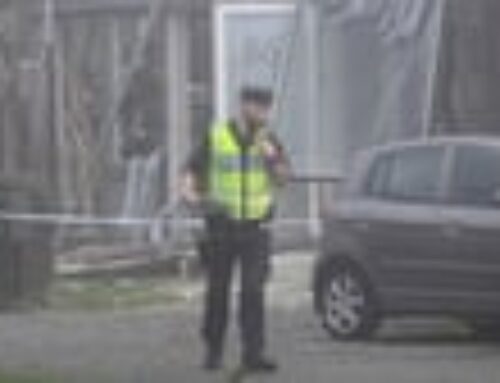A Dutch court has sentenced 11 men to between one and nine years for maintaining an “underworld prison” with a torture chamber, hidden in shipping containers, in a case that shocked the Netherlands.
The case revolved around seven containers found by police almost two years ago in a southern Dutch forest, following up on information from a hack of the European-wide EncroChat encrypted phone system, popular with criminal gangs.
During the raid, police found one of the containers was kitted out with a dentist’s chair, along with pruning shears, a saw, scalpels and pliers. The other six containers were set up to be prison cells.
“The court found that the suspects all contributed to a plan to kidnap, ransom, blackmail, torture and kill criminal opponents or their relatives,” the Amsterdam district court said in a statement on Wednesday. “The men formed a group based on a fight over money in the criminal world and planned to take the law into their own hands. The lack of respect for the personal freedom and integrity of others is shocking.”
Dutch media named the chief suspect as Roger P, 50, known by his underworld name “Piet Costa” – allegedly because he often travelled to Costa Rica.
Costa, who was jailed last month for 15 years for cocaine trafficking, was handed an additional 33-month sentence.
Judges jailed his 40-year-old righthand man for eight years. Nine other men were also sentenced and one was acquitted.
Dutch police discovered the prison complex after hacking the EncroChat encrypted system in 2020, and judges ruled that evidence from the system was admissible in court.
The criminals sent chat messages via EncroChat, including saying “we must have enough belts and tie-wraps to tie them” and “we need cutting pliers for fingers and toes”.
During the trial, one public prosecutor said that the evidence should remind recreational cocaine users of the consequences of their habits, a Dutch prosecutor has said.
In a hearing in February, Koos Plooij told the court that the violence of the drug trade was a “repulsive, but apparently unavoidable” result of the widespread use of illegal drugs in the Netherlands and neighbouring countries.
“The question is how many people are willing to admit that there is indeed a connection between their cocaine use – whether it is to party, deal with work stress or suppress psychological problems – and the underworld that is happy to answer demand but according to its own rules: corrupting, undermining, tough, sparing nothing and nobody,” Plooij said.





